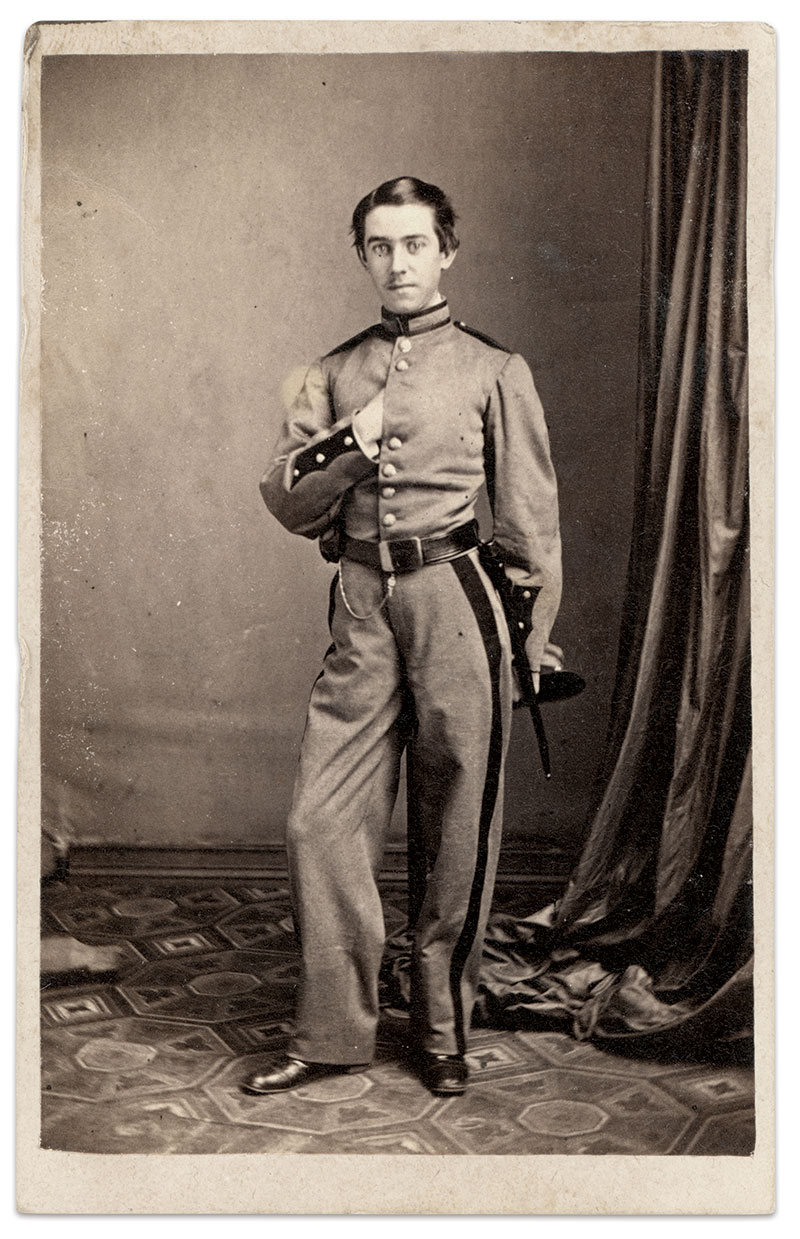By Scott Valentine
Occasionally, the ordeal of war is too much to bear. Such was the case for Cpl. Thomas Sturges Thorp, Jr., of the 23rd New York National Guard. A popular young man in the ranks and back home in Brooklyn, one biographer noted his unselfish character and desire to bring joy to others through his work in Christian organizations.

The war intervened, however. Activated for federal service during the Gettysburg Campaign, the 23rd left for neighboring Pennsylvania on June 18, 1863. The New Yorkers joined other militia and volunteer regiments in the 3rd Brigade, 1st Division, Department of the Susquehanna. This force advanced to Carlisle to block Confederate Lt. Gen. Richard S. Ewell’s Corps, which threatened Harrisburg.
While involved in minor actions, the men of the 23rd suffered terribly from forced marches. Thorp described the hardship he suffered after one especially grueling trek in a letter to his mother:
“I tell you, I was glad to get here and rest last night; I had not eaten a meal for forty hours, except one cup of coffee and a small piece of bread with a very little meat. Fourth of July we spent in marching all day, and it was the night of the Fourth that we spent in the mud in the woods. I shall never forget it; it was the most horrible night I ever spent, and I am truly thankful to my Heavenly Father for preserving me from the death that was so imminent.”
After an arduous month of service the regiment mustered out at Brooklyn.
Thorp went on to become vice president of the Brooklyn Young Men’s Christian Association. Gradually, family and friends noticed a change in his behavior. Over time, he transformed from an “amiable youth, happy and gifted in person, in mind, and character” to morose and preoccupied.
On March 7, 1867, the Brooklyn Daily Eagle reported, “Suicide of a Young Man – Coroner Lynch yesterday afternoon held an inquest upon the body of a young man named Thomas Thorp, Jr., who committed suicide yesterday morning at the residence of his parents…The deceased, who had been considerably depressed in spirits for some time, deliberately blew his brains out before 8 o’clock yesterday morning while lying in bed. The contents of the pistol passed in at the temple causing instant death. The deceased was twenty-five years of age, and no pecuniary depletion could have prompted him to commission of the rash act.”
While 19th century doctors did not have the education and experience to diagnose his mental symptoms, he may have suffered post-traumatic stress disorder.
Scott Valentine is a MI Contributing Editor.
SPREAD THE WORD: We encourage you to share this story on social media and elsewhere to educate and raise awareness. If you wish to use any image on this page for another purpose, please request permission.
LEARN MORE about Military Images, America’s only magazine dedicated to showcasing, interpreting and preserving Civil War portrait photography.
VISIT OUR STORE to subscribe, renew a subscription, and more.

